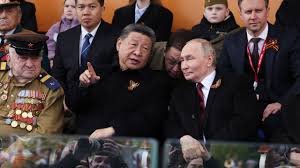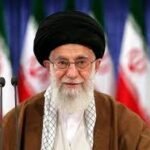A Humble Beginning in Post-War Leningrad of Vladimir Putin
Vladimir Putin was born on October 7, 1952, in Leningrad (now St. Petersburg), a city still bearing the scars of World War II. His childhood was marked by poverty—his family lived in a communal apartment shared with two other families, and young Vladimir often played in the bombed-out ruins of his neighborhood. Few know that his father, a Soviet Navy veteran, was nearly killed in the war, surviving only because a German soldier spared him out of pity—an irony given Putin’s later hardline stance against Nazi ideology. His mother, a factory worker, secretly baptized him in the Russian Orthodox Church despite the USSR’s atheist policies, planting early seeds of his later embrace of religion as a national symbol.
As a boy, Putin was small and frequently bullied, which drove him to study judo obsessively. By 16, he had earned a black belt and developed a reputation for disciplined aggression—a trait that would define his political career. His dream of becoming a Soviet intelligence officer was sparked after watching a film about spies, leading him to study law at Leningrad State University, where he was one of the few students allowed to skip mandatory Communist Party meetings.
The KGB Years: From Dresden to the Fall of the USSR
Putin joined the KGB in 1975, serving first in counterintelligence before being stationed in Dresden, East Germany, in the 1980s. His time there was far from the glamorous spy life many imagine—he mostly monitored student dissidents and filed mundane reports. However, a little-known incident in 1989 revealed his quick thinking during crisis. As the Berlin Wall fell and angry mobs stormed Stasi offices, Putin single-handedly protected the KGB’s Dresden compound by bluffing protesters with an empty pistol, buying time to burn sensitive documents. This experience of Soviet collapse amid German reunification deeply shaped his belief that Russia must never appear weak.
Returning to a crumbling USSR in 1990, Putin resigned from the KGB as a lieutenant colonel and entered politics under the mentorship of St. Petersburg mayor Anatoly Sobchak. His first major test came during the 1991 coup attempt against Gorbachev, when he reportedly secured St. Petersburg’s government buildings from hardliners by negotiating with both sides—an early display of tactical pragmatism.
The Rise to Power: From Obscure Bureaucrat to Yeltsin’s Successor of Vladimir Putin
The 1990s were Putin’s political crucible. As Sobchak’s deputy mayor, he oversaw St. Petersburg’s economic reforms but was accused of turning a blind eye to corruption—allegations that still haunt him. His big break came in 1996 when financial chaos forced him to Moscow, where he climbed the ranks through loyalty and competence. Few remember that before becoming prime minister in 1999, Putin briefly led the FSB (the KGB’s successor), where he purged dozens of officers in a bid to “clean house.”
His appointment as acting president on New Year’s Eve 1999 shocked the world. Boris Yeltsin’s inner circle had chosen him as a “safe” transitional figure, but Putin quickly proved otherwise. Within months, he launched the Second Chechen War, using brutal tactics that boosted his popularity as a “strong leader.” His famous quote—”We’ll waste terrorists in the outhouse”—became a rallying cry for a nation weary of chaos.
Vladimir Putin System: Silencing Opposition and Centralizing Power
Putin’s presidency (2000–2008) transformed Russia from a faltering democracy into an authoritarian state. He dismantled independent media, starting with the seizure of NTV in 2001, and replaced regional governors with Kremlin appointees. Yet his early years also saw real achievements: GDP tripled due to high oil prices, poverty halved, and Russia paid off its Soviet-era debts. A rarely discussed fact is that Putin personally negotiated with oligarchs like Mikhail Khodorkovsky, offering them amnesty for loyalty—until Khodorkovsky’s arrest in 2003 sent a clear message: submit or fall.
His 2008–2012 “tandem” presidency with Dmitry Medvedev was a constitutional workaround to retain power, but the 2011–2012 protests (sparked by election fraud) exposed growing dissent. Putin’s response—passing laws against “foreign agent” NGOs and jailing Pussy Riot members—marked a turn toward overt repression.

The Strongman’s Gamble: Crimea, Syria, and the New Cold War
Putin’s 2014 annexation of Crimea was a masterstroke of hybrid warfare, using unmarked “little green men” to seize the peninsula without immediate retaliation. The move boosted his domestic approval to 86%, but sanctions and oil price crashes soon crippled Russia’s economy. Few know that Putin had initially planned only to destabilize Ukraine until pro-Russian president Viktor Yanukovych fled, forcing him to improvise the annexation.
His 2015 Syrian intervention showcased Russia’s revived military might, saving Bashar al-Assad’s regime and establishing permanent Mediterranean bases. Behind the scenes, Putin personally approved bombing campaigns that targeted hospitals—a strategy designed to break civilian morale, as revealed by intercepted military memos.
The Shadow War: Poisonings, Cyberattacks, and Election Meddling
Putin’s alleged use of assassination as a policy tool became global news with the 2006 polonium poisoning of Alexander Litvinenko and the 2018 Novichok attack on Sergei Skripal. Less known is the 2015 murder of opposition leader Boris Nemtsov, shot near the Kremlin by Chechen hitmen with suspected FSB ties.
Russia’s cyber warfare unit, nicknamed “Fancy Bear,” hacked the 2016 U.S. elections, but Putin’s most successful influence operation may be his cultivation of far-right European leaders like Marine Le Pen, whom he reportedly advised to soften her rhetoric for mainstream appeal.
The Ukraine War: A Legacy-Defining Disaster
The 2022 invasion of Ukraine exposed fatal flaws in Putin’s system. Convinced by yes-men that Kyiv would fall in three days, he triggered Europe’s deadliest conflict since WWII. Early battlefield failures led to desperate measures: drafting prisoners, threatening nukes, and purging generals.
A shocking but verified detail: Putin’s long table meetings (initially attributed to COVID) were actually because he feared assassination after the invasion began. His paranoia grew as sanctions isolated Russia, with even longtime allies like China refusing military support.
The Future: Can Putin Survive His Own Ambition?
As of 2024, Putin rules a sanctioned, aging Russia, having eliminated all viable successors. His health rumors—from Parkinson’s to cancer—remain unconfirmed, but his increasingly erratic behavior (like berating aides on live TV) suggests mounting pressure.
Yet he retains a cult-like following among Russians who see him as a bulwark against Western domination. Whether his legacy will be as Russia’s savior or its downfall remains history’s unanswered question.
Go to main page


